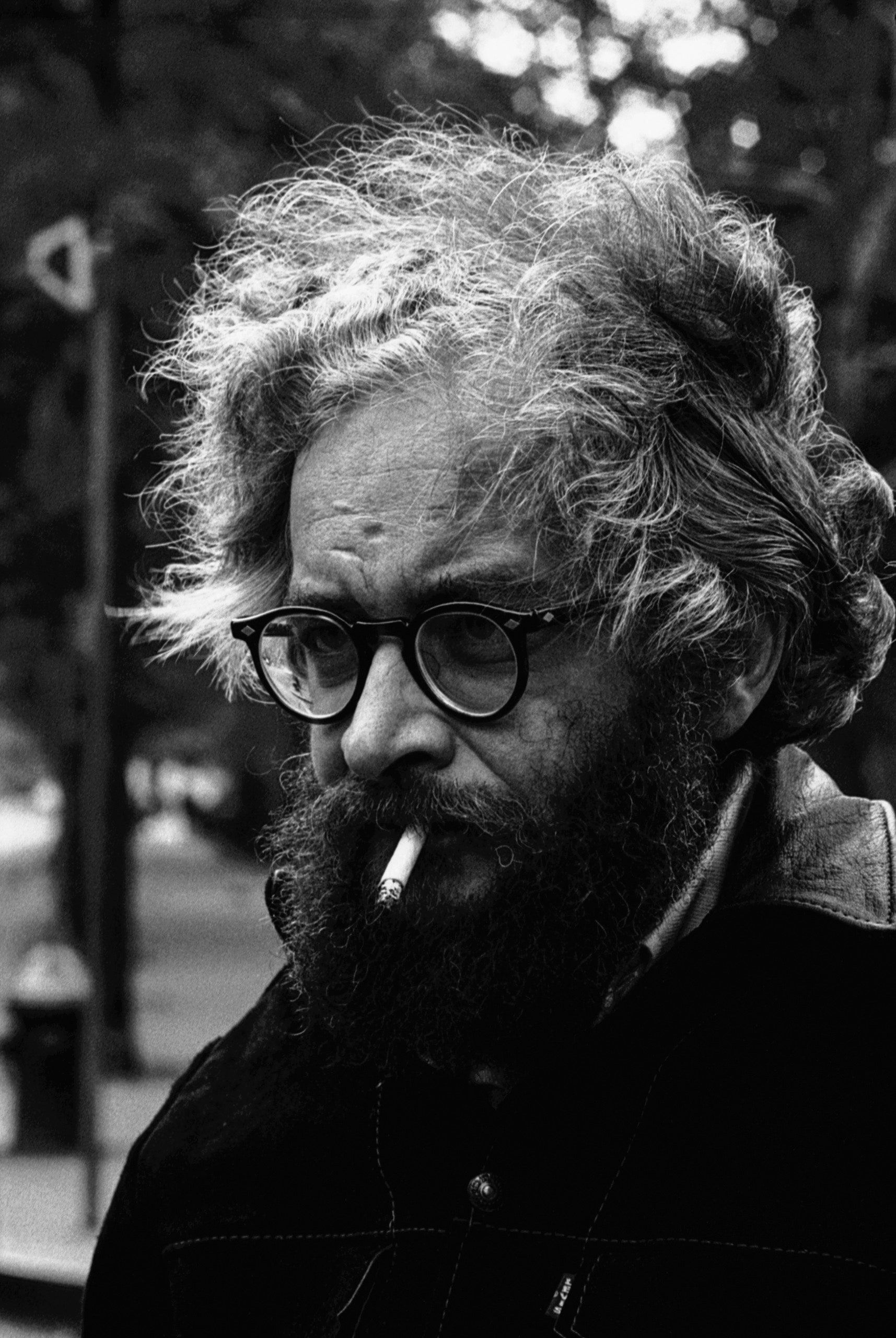New Yorker’s October 5 issue features a look at EGC Bishop and artistic polymath Harry Smith, in conjunction with the release of a new compilation of the flip sides of the 78 RPM records whose A-Sides Smith chose for his Anthology of American Folk Music – perhaps one of the most ambitious and momentarily successful talismans ever contrived, charged and unleashed in recent history. Since Harry COULD have chosen any of these B-sides for inclusion on the Anthology, one might question how this new collection adds to his conceptual/magical vision. But… obviously geeks and completists will freak over this (me, I’m saving up my credit card cashback for the super deluxe edition of Prince’s Sign O’ the Times myself). The article starts:
“In 1951, the record collector Harry Smith met with Moe Asch, a co-founder of Folkways Records, to see if Asch would buy all or part of his collection. Smith, who was born in Portland, Oregon, in 1923, and died in 1991, was an eccentric polymath. He painted, made experimental films, practiced occult alchemy (he was ordained in the Ecclesia Gnostica Catholica, a spiritual group affiliated with the magician and self-appointed prophet Aleister Crowley), and believed that the careful accumulation and ordering of things could bring about new knowledge. “All my projects are only attempts to build up a series of objects that allow some sort of generalizations to be made,” he said, in 1968. Smith collected all sorts of stuff: paper airplanes, Ukrainian Easter eggs, figures he made by looping or weaving lengths of string, anything shaped like a hamburger, and thousands, if not tens of thousands, of 78-r.p.m. records, ten-inch platters introduced around the beginning of the twentieth century that contain about three minutes of music on each side. The first 78 Smith bought was by the Mississippi-born blues guitarist Tommy McClennan. ‘It sounded strange—and I looked for others,’ he said.”
and ends:
” It was talismanic; you had to put in some work before you got to hear it. When I finally got my hands on a copy, in the late nineties, I found that listening to it was a metaphysical experience, insofar as it seemed to bend the rules of space and time. Discovering new music often feels like that—it’s as if you have come upon a secret room in a house that you have occupied for years.
“Because the ‘Anthology’ was literally encased in an occult symbol—the single string of the celestial monochord is meant to connect Heaven and earth—it seemed possible that others might feel the otherworldly trance I often fell into while listening to the collection. Maybe Smith was giving us permission to be rhapsodic about the experience—to finally submit to what Ginsberg once called ‘burning for the ancient heavenly connection to the starry dynamo.’ To accept music as magic.”
Read the entire article:
https://www.newyorker.com/magazine/2020/10/05/harry-smiths-musical-catalogue-of-human-experience.

